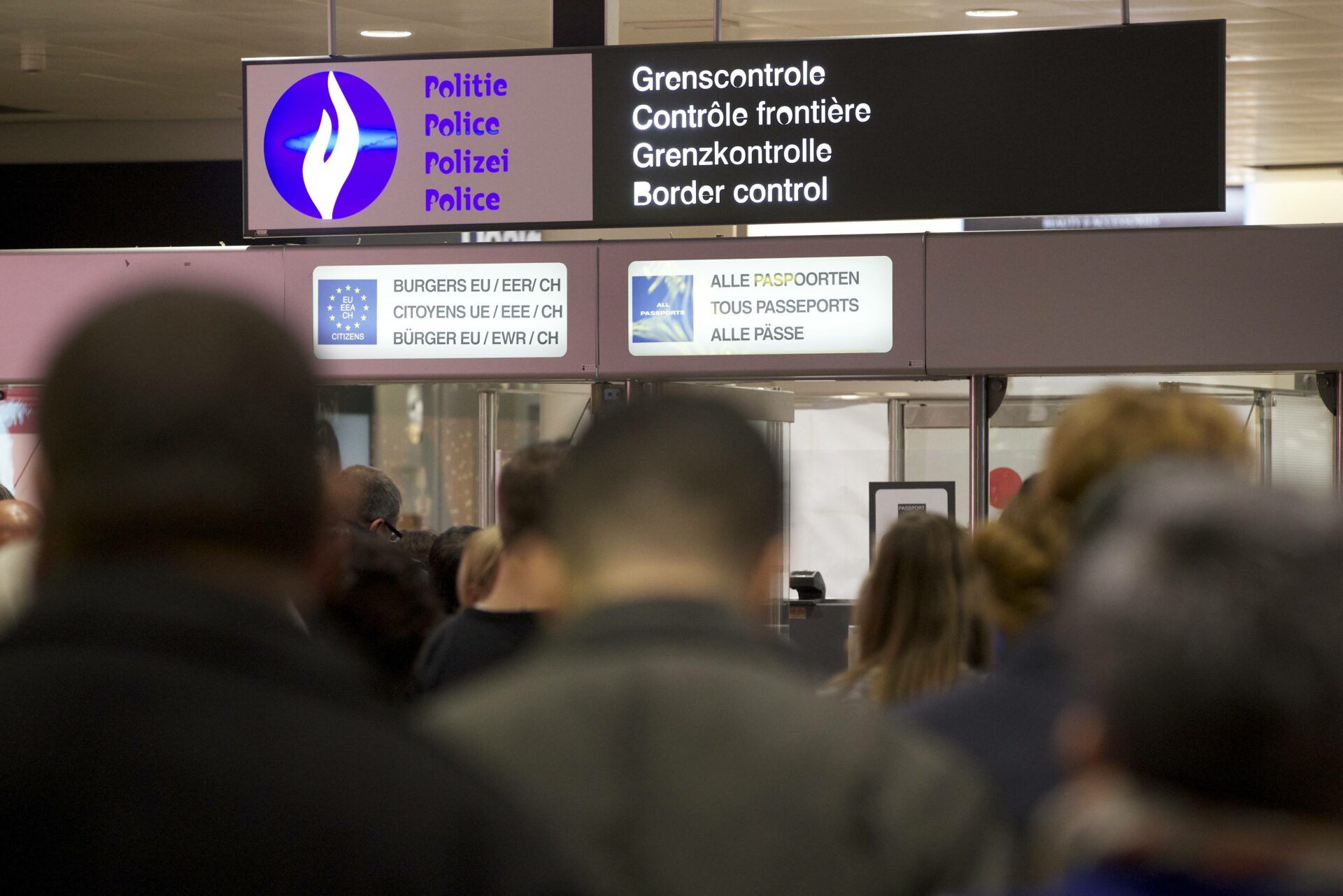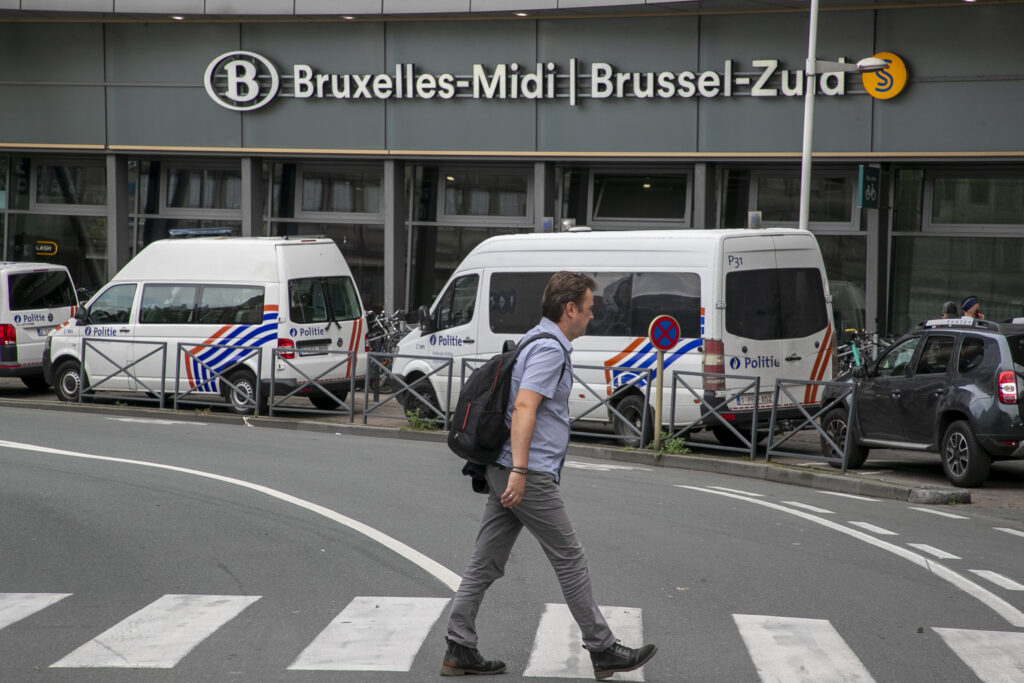The Federal Government has passed a law allowing agents from the European border agency Frontex to be deployed at various entry points to Belgium, including Brussels-Midi railway station and key airports.
The bill by Justice Minister Paul Van Tigchelt (Open VLD) and Home Affairs Minister Annelies Verlinden (CD&V), granting Frontex extensive powers on Belgian territory, was due to be put to a vote at the Chamber's plenary session on 25 April but was postponed due to the civil protest. However, it was finally approved by the Chamber on Thursday evening.
Specifically, the bill allows up to 100 Frontex agents to be deployed at airports, seaports, Brussels-Midi railway station and the Eurostar tunnel, where they will be responsible for border controls. Importantly, agents will have the authority to carry out arrests, detentions and even expulsions – powers usually reserved for the police.
This means agents can be used as escorts to accompany migrants compelled to return to their country of origin.
Lack of precision opens door to abuse
The government has argued the deployment must follow strict operating conditions. In theory, Frontex agents would only be allowed to act in the presence of a Federal Police officer.
However the wording in the bill leaves room for interpretation, raising concerns that Frontex agents could act unsupervised. For civil society organisations, this is a dangerous precedent, considering Frontex's history of mistreating migrants and asylum seekers.
"For us, the mandatory presence of a police officer is an absolute necessity. But the law has vague wording which leaves space for Frontex agents to act alone," Thomas Willekens of Refugeework Flanders (Vluchtelingenwerk Vlaanderen) told The Brussels Times. This lack of precision was also addressed by the Council of State, which said those powers should be set out in better detail.
Willekens added that the powers accorded to Frontex agents on the Belgian territory are also vague, potentially allowing them to make arrests anywhere on Belgian territory and opening the door to human rights violations. The government says it is working on a Royal Decree defining where agents can be deployed, but Willekens is sceptical.
"The next government could decide to make a U-turn here and instead expand the deployment to the whole territory, allowing Frontex agents to make arrests without a police officer present. This current law gives too much leeway to the next government, despite knowing that Frontex does not have too good a track record."

Credit: Belga/Nicolas Maeterlinck
Willekens also said the law was rushed through the Federal Parliament. "The draft was submitted in the Chamber on 2 April and voted one month later. The fact they rushed such an important bill is even more worrying. It makes us wonder whether they did so to limit critical responses and action being taken."
Initially, all parties agreed to vote in favour of the bill except the left-wing PTB-PVBA. But this spurred criticism against the left-wing Green parties (Groen and Ecolo) and the socialist PS and Vooruit parties, with organisations taking action at the PS and Ecolo Labour Day parties to demand they vote against the law on Thursday. Finally, there were abstentions from PS and Ecolo.

